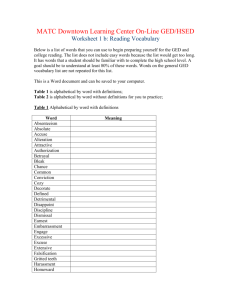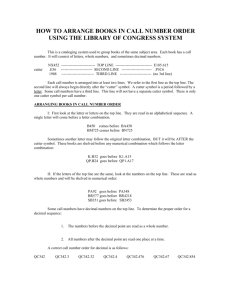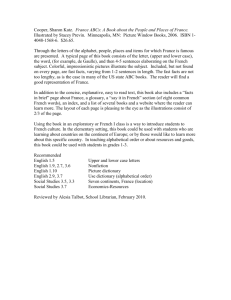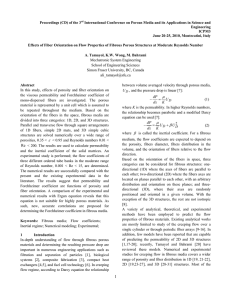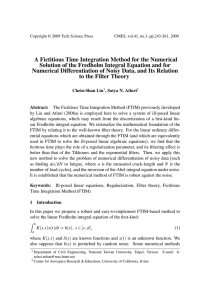Identifying the Parts of an LC Call Number QE 862 .D5
advertisement
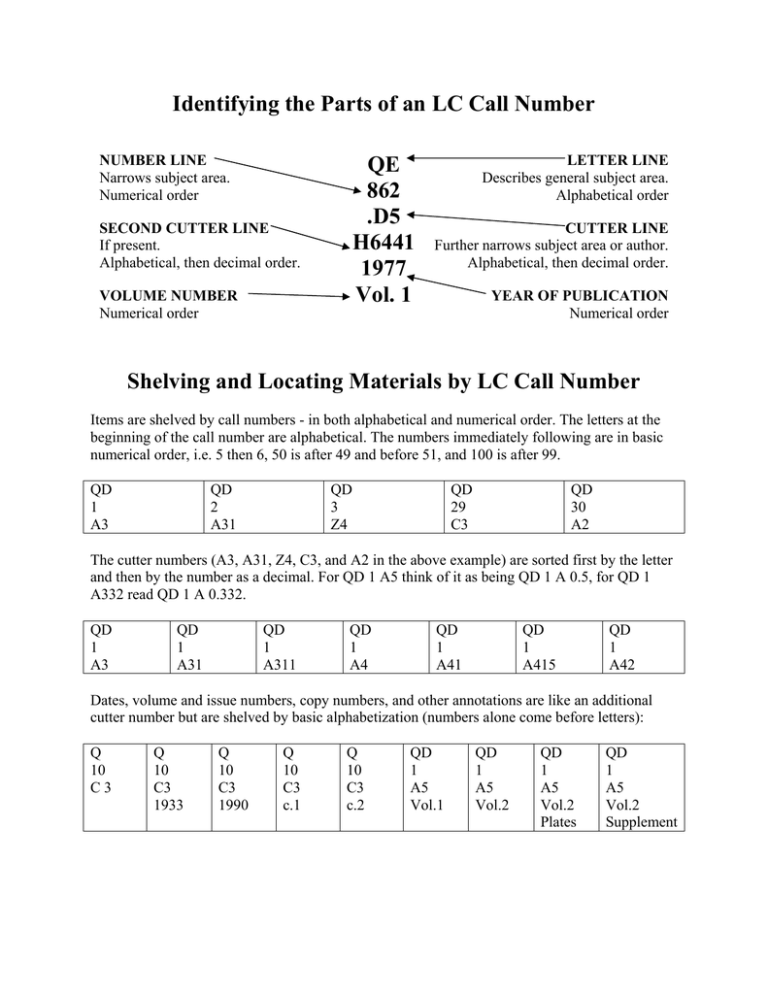
Identifying the Parts of an LC Call Number NUMBER LINE Narrows subject area. Numerical order QE 862 .D5 H6441 1977 Vol. 1 SECOND CUTTER LINE If present. Alphabetical, then decimal order. VOLUME NUMBER Numerical order LETTER LINE Describes general subject area. Alphabetical order CUTTER LINE Further narrows subject area or author. Alphabetical, then decimal order. YEAR OF PUBLICATION Numerical order Shelving and Locating Materials by LC Call Number Items are shelved by call numbers - in both alphabetical and numerical order. The letters at the beginning of the call number are alphabetical. The numbers immediately following are in basic numerical order, i.e. 5 then 6, 50 is after 49 and before 51, and 100 is after 99. QD 1 A3 QD 2 A31 QD 3 Z4 QD 29 C3 QD 30 A2 The cutter numbers (A3, A31, Z4, C3, and A2 in the above example) are sorted first by the letter and then by the number as a decimal. For QD 1 A5 think of it as being QD 1 A 0.5, for QD 1 A332 read QD 1 A 0.332. QD 1 A3 QD 1 A31 QD 1 A311 QD 1 A4 QD 1 A41 QD 1 A415 QD 1 A42 Dates, volume and issue numbers, copy numbers, and other annotations are like an additional cutter number but are shelved by basic alphabetization (numbers alone come before letters): Q 10 C3 Q 10 C3 1933 Q 10 C3 1990 Q 10 C3 c.1 Q 10 C3 c.2 QD 1 A5 Vol.1 QD 1 A5 Vol.2 QD 1 A5 Vol.2 Plates QD 1 A5 Vol.2 Supplement
